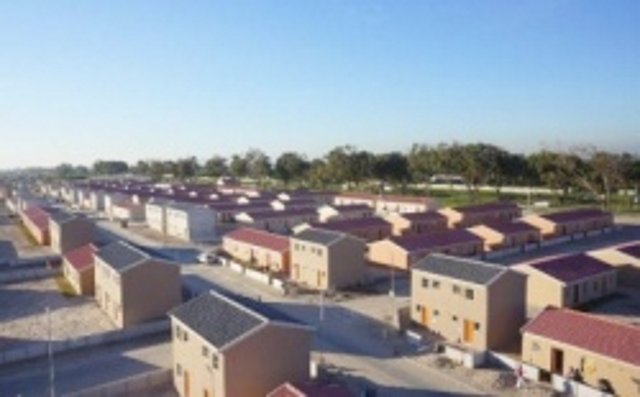As part of the continued efforts to increase the delivery of housing opportunities, the City of Cape Town has already handed over about 1 200 Breaking New Ground (BNG) units to beneficiaries of the Pelican Park integrated human settlements development.
 The City’s Mayoral Committee Member for Human Settlements, Councillor Benedicta van Minnen, says it is expected that in excess of 700 subsidised houses will be handed over by December 2016, which will see the completion of the State-funded portion of the project.
The City’s Mayoral Committee Member for Human Settlements, Councillor Benedicta van Minnen, says it is expected that in excess of 700 subsidised houses will be handed over by December 2016, which will see the completion of the State-funded portion of the project.This is according to the City’s Mayoral Committee Member for Human Settlements, Councillor Benedicta van Minnen, who says it is expected that in excess of 700 subsidised houses will be handed over by December 2016, which will see the completion of the State-funded portion of the project.
The total cost of this development is about R700 million, which includes State funding and private investment.
Van Minnen says they are sparing no effort to ensure that this development is completed on time. “With our partners, we are making progress possible, and this project shows that we cannot forever rely only on government to fund the large-scale delivery of housing opportunities to our marginalised residents.”
She says the private sector must be drawn in to balance the dynamics of the housing market, and new ways have to be devised to ensure delivery of scale. “The City cannot do this alone. The increased delivery of housing opportunities to our vulnerable residents must become part of the mainstream conversation.”
Pelican Park, a World Design Capital 2014 project, is integrated across the full spectrum of affordability, with 2 024 totally subsidised homes (Breaking New Ground) being built alongside 760 starter homes (Gap Housing) selling for R320 000, and 360 higher value homes valued from R480 000 to R700 000.
The development incorporates provision for two new schools and a regional clinic to be developed by the Western Cape Government Department of Education and City Health respectively, as well as two properties zoned as places of worship.
A commercial precinct was also opened in November 2014 in an effort to enable economic opportunities for the residents. There are generous open spaces within the development itself and safe courtyards encircled by houses, she says.
The development also fronts onto the False Bay Ecology Park, which can be accessed during daylight hours and provides pleasant opportunities for bird watching and picnicking while overlooking Zeekoevlei.
Van Minnen says many of their residents were denied homeownership under the apartheid regime. Receiving the opportunity to own an asset is key to the empowerment of previously disadvantaged residents and to the transformation of the city in general.







